Power interruptions can destroy electronics and disrupt critical operations in an instant. You might lose unsaved work or, worse, damage expensive equipment.
An uninterruptible power supply (UPS) provides emergency power when the main power fails, protects against voltage spikes, and gives you time to safely shut down equipment. It acts as a bridge between power loss and generator activation or proper system shutdown.
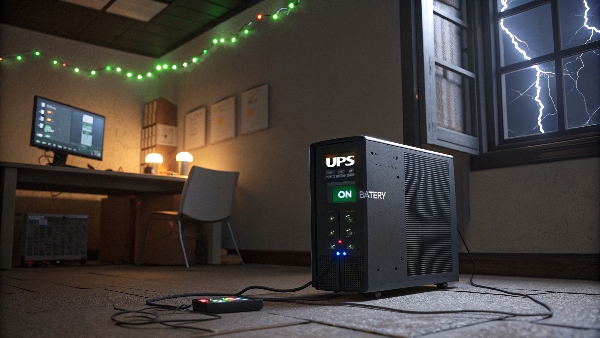
UPS systems vary based on need - from protecting a single computer to running entire hospitals during outages. Let's examine why they're essential and how they work.
What Is the Purpose of Using an Uninterruptible Power Supply?
Many people think UPS systems only provide backup power, but their benefits go much deeper.
The main purposes of a UPS are: preventing data loss during outages, protecting equipment from power surges, and maintaining steady voltage to sensitive electronics. They're crucial for computers, medical devices, and communication systems.
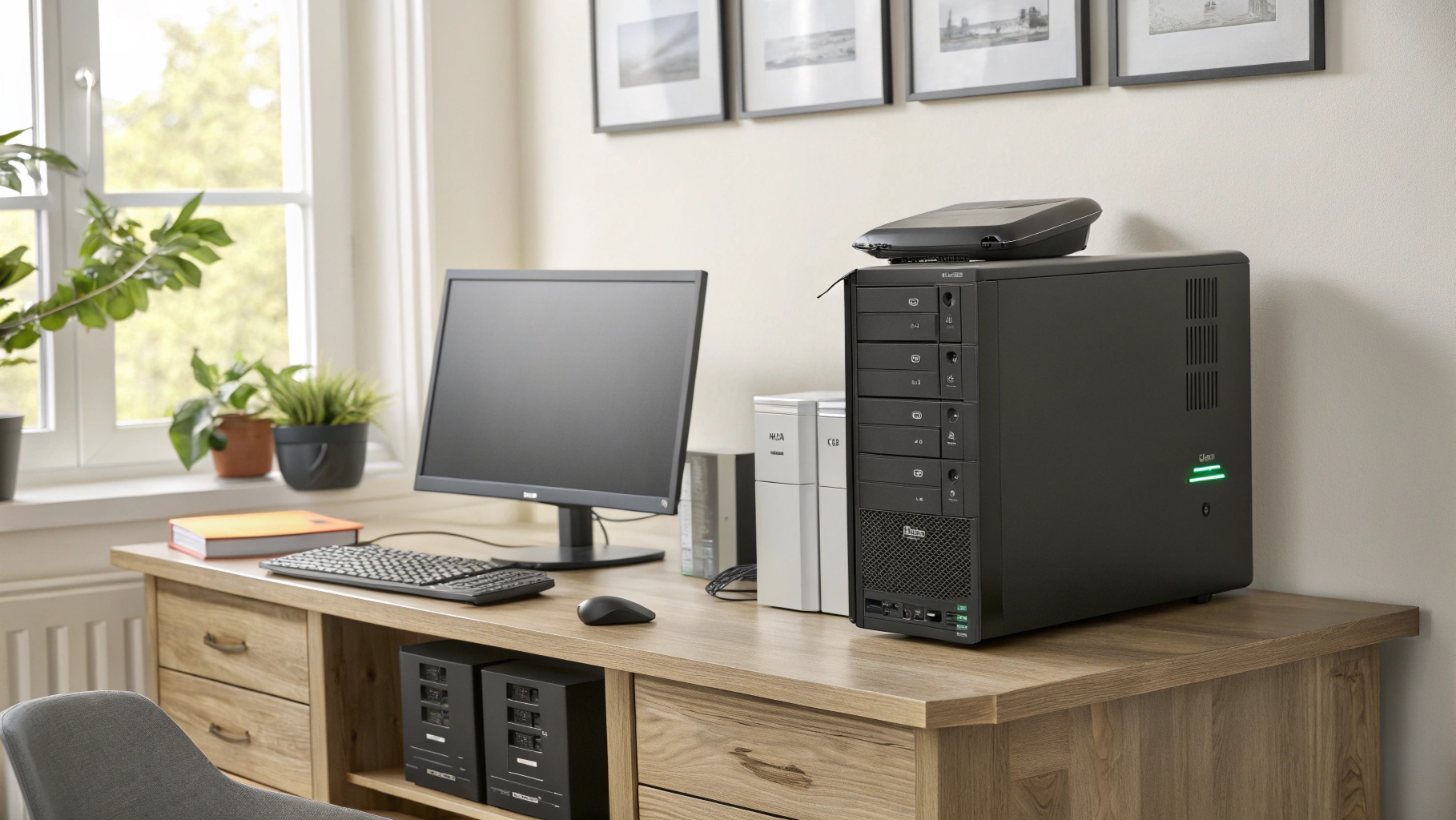
Detailed Functions of a UPS
-
Bridging Power Gaps:
- Instantly switches to battery when main power fails
- Gives 5-30 minutes (or more) for safe shutdown
- Maintains power until generators start (in large installations)
-
Power Conditioning:
- Filters out surges and spikes
- Corrects under-voltage and over-voltage
- Provides clean, stable power to connected devices
-
Voltage Regulation:
- Maintains consistent output voltage
- Prevents brownouts from damaging equipment
- Especially important in areas with unstable power grids
What Should Not Be Plugged Into a UPS?
Not all devices play nicely with UPS systems. Some can actually damage your backup power or render it useless.
Avoid plugging high-power devices like space heaters, laser printers, or air conditioners into a UPS. These devices draw too much power and will drain batteries quickly or potentially damage the UPS.
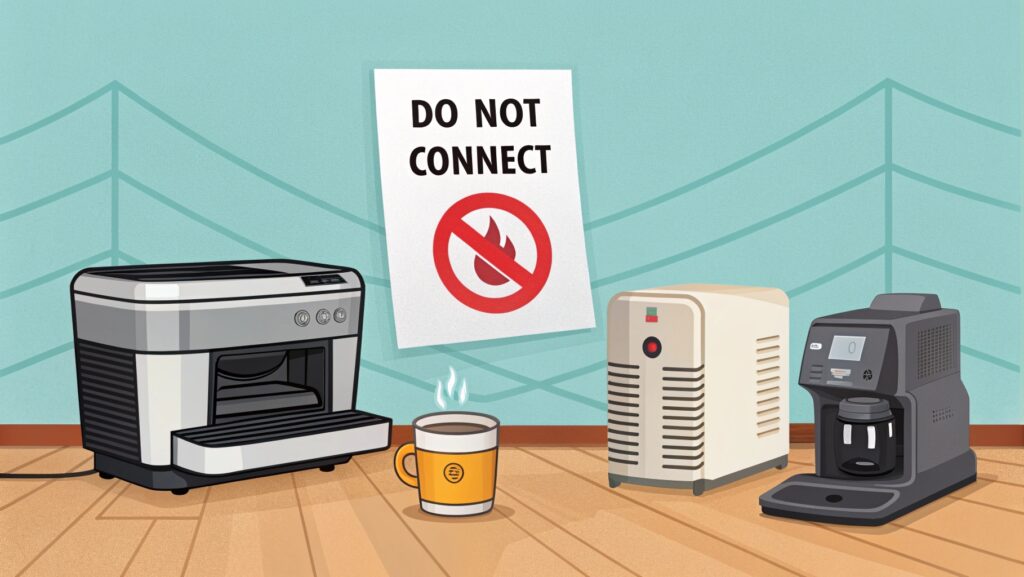
Devices That Don't Belong on a UPS
| Device Type | Reason to Avoid | Better Alternative |
|---|---|---|
| Laser Printers | Huge power surges when heating | Plug directly into wall outlet |
| Space Heaters | Constant high wattage draw | Separate circuit |
| Medical Equipment | Some require special power systems | Hospital-grade isolation panels |
| Industrial Motors | Cause voltage fluctuations | Dedicated power conditioner |
| Coffee Makers | High wattage for heating elements | Regular outlet |
Remember: UPS systems are for electronics that need clean power and short-term backup, not appliances that generate heat or mechanical motion.
Do I Really Need an Uninterruptible Power Supply?
You might think power outages are rare or that surge protectors are enough. But the costs of being wrong can be devastating.
If you use computers for work, run medical equipment, or depend on sensitive electronics, you need a UPS. Even brief power interruptions can cause data loss or equipment damage worth thousands to repair.
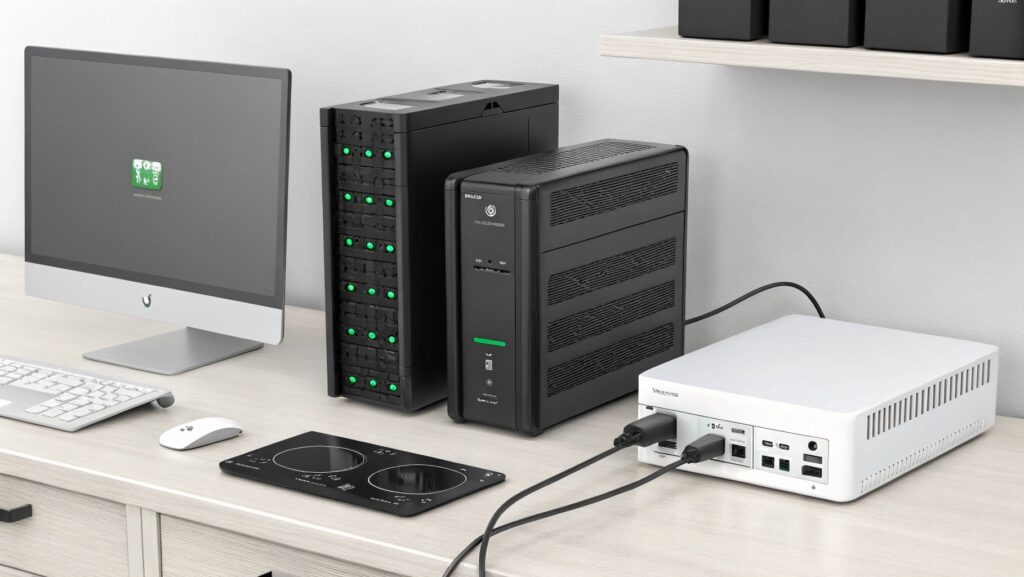
When a UPS Becomes Essential
-
Business Operations:
- Prevents data corruption during unexpected shutdowns
- Allows time to save documents and properly close programs
- Maintains network connectivity during short outages
-
Medical Applications:
- Keeps life-support systems running
- Prevents interruption during surgical procedures
- Protects sensitive diagnostic equipment
-
Home Offices:
- Safeguards against lost work
- Protects expensive computer equipment
- Maintains internet during short outages
-
Gaming/Entertainment:
- Prevents game progress loss
- Protects high-end gaming PCs
- Keeps network connections alive
What Is the UPS Power Supply For?
Different situations call for different UPS solutions. Choosing the wrong type can leave you unprotected.
UPS systems serve three main purposes: protecting devices from power problems, providing time for proper shutdowns, and maintaining operations during outages. They're used everywhere from home offices to data centers to hospitals.
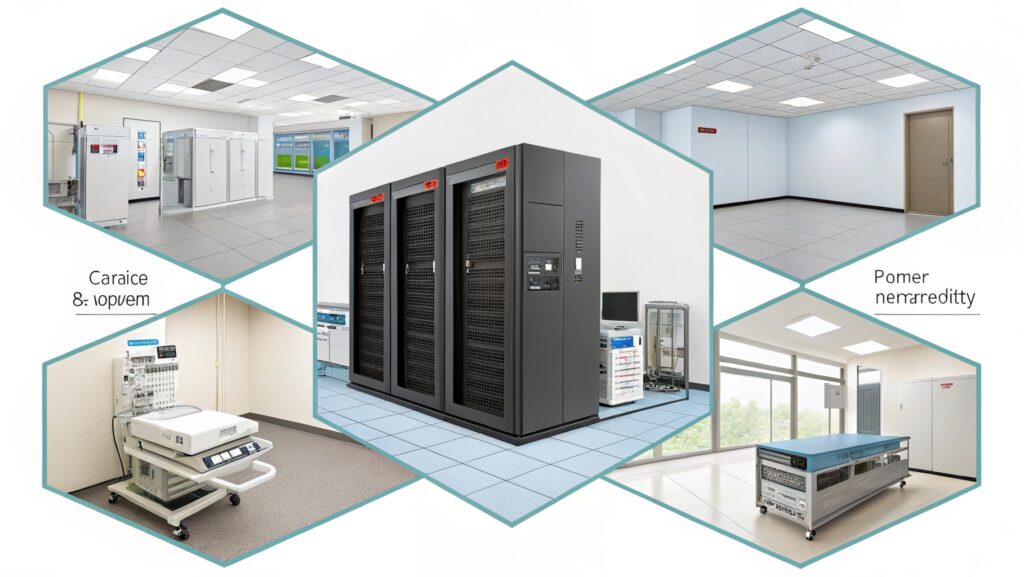
Common Applications of UPS Systems
-
IT and Data Centers:
- Prevents server crashes
- Maintains network operations
- Protects against data loss
-
Healthcare Facilities:
- Ensures continuous operation of life-saving equipment
- Protects sensitive medical electronics
- Maintains lighting in critical areas
-
Industrial Settings:
- Prevents production line stoppages
- Protects programmable logic controllers
- Maintains safety systems during outages
-
Home Use:
- Protects home computers and TVs
- Keeps security systems online
- Maintains internet routers and modems
Conclusion
A UPS does more than just provide backup power - it protects your equipment, maintains operations, and prevents costly damage. Whether for business, medical, or personal use, the right UPS is invaluable insurance against power problems.

